| Selo | Museum Tusculanum Press |
|---|---|
| Edição | 0 |
| Idioma | Inglês |
| Autores | Não informado |
| Acabamento | Capa Comum |
| Quantidade de Páginas | 234 |
| Origem | Literatura Estrangeira |
 A justiça mais injusta
A justiça mais injusta
Telha
R$ 52,00 à vista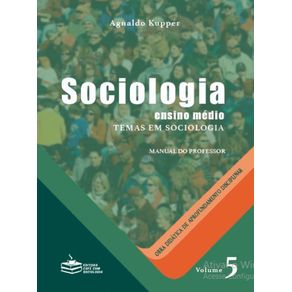 Sociologia: ensino médio - Temas de Sociologia (Vol.5)
Sociologia: ensino médio - Temas de Sociologia (Vol.5)
Editora Café com Sociologia
R$ 69,90 à vista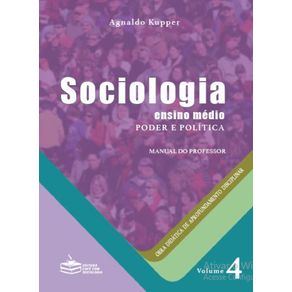 Sociologia: ensino médio - Poder e Política (Vol.4)
Sociologia: ensino médio - Poder e Política (Vol.4)
Editora Café com Sociologia
R$ 70,90 à vista O Enfraquecimento do Pai
O Enfraquecimento do Pai
Editora Viseu
R$ 40,90 à vista A ação coletiva e seus sentidos
A ação coletiva e seus sentidos
Editora Viseu
R$ 98,90 à vista Gestion participative et politiques publiques
Gestion participative et politiques publiques
KS OmniScriptum Publishing
R$ 566,52 ou até 3x sem juros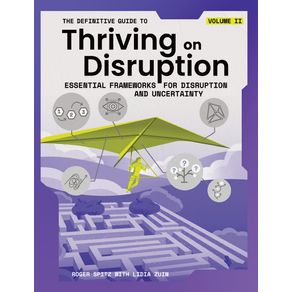 The Definitive Guide to Thriving on Disruption
The Definitive Guide to Thriving on Disruption
Disruptive Futures Institute
R$ 250,93 ou até 3x sem juros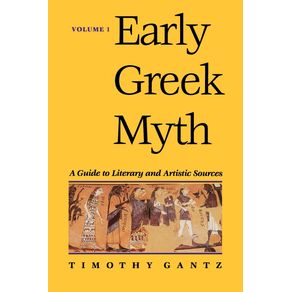 Early Greek Myth
Early Greek Myth
Hopkins Fulfillment Service
R$ 340,67 ou até 3x sem juros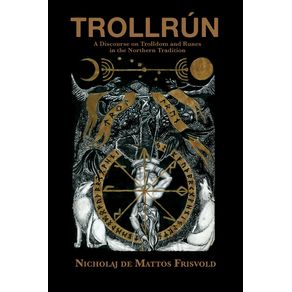 TROLLRÚN
TROLLRÚN
Hadean Press Limited
R$ 182,59 ou até 3x sem juros Les Fables de la Fontaine
Les Fables de la Fontaine
Books on Demand
R$ 229,30 ou até 3x sem juros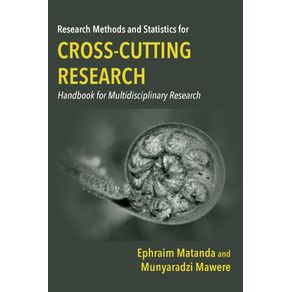 Research Methods and Statistics for Cross-Cutting Research
Research Methods and Statistics for Cross-Cutting Research
African Books Collective
R$ 363,77 ou até 3x sem juros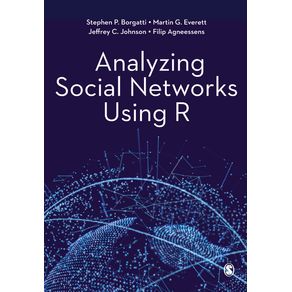 Analyzing Social Networks Using R
Analyzing Social Networks Using R
Sage Publications
R$ 415,55 ou até 3x sem juros Clearing the Waters
Clearing the Waters
Hadean Press Limited
R$ 123,90 ou até 2x sem juros Woman and the New Race
Woman and the New Race
Cosimo
R$ 158,15 ou até 3x sem juros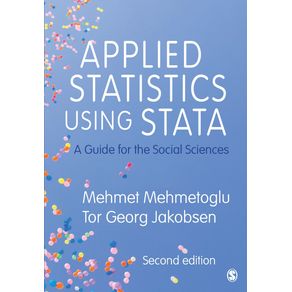 Applied Statistics Using Stata
Applied Statistics Using Stata
Sage Publications
R$ 449,95 ou até 3x sem juros A era da empatia
A era da empatia
Companhia das Letras
R$ 89,90 à vista TDICs e Sociologia: propostas pedago?gicas: (volume 2)
TDICs e Sociologia: propostas pedago?gicas: (volume 2)
Editora Café com Sociologia
R$ 47,90 à vista Sociologia: ensino médio - Poder e Política (Vol.4)
Sociologia: ensino médio - Poder e Política (Vol.4)
Editora Café com Sociologia
R$ 70,90 à vista Processos da cena cosplay: Conexões entre jogo e teatro na prática em São Luís
Processos da cena cosplay: Conexões entre jogo e teatro na prática em São Luís
Editora Viseu
R$ 40,90 à vista O feminismo presente em casa de bonecas
O feminismo presente em casa de bonecas
Editora Viseu
R$ 28,90 à vista A coopetição como estratégia de fortalecimento das capacidades dinâmicas
A coopetição como estratégia de fortalecimento das capacidades dinâmicas
Editora Viseu
R$ 47,90 à vista A Therapists Guide
A Therapists Guide
PATH
R$ 115,76 ou até 2x sem juros Gestion participative et politiques publiques
Gestion participative et politiques publiques
KS OmniScriptum Publishing
R$ 566,52 ou até 3x sem juros The Definitive Guide to Thriving on Disruption
The Definitive Guide to Thriving on Disruption
Disruptive Futures Institute
R$ 250,93 ou até 3x sem juros TROLLRÚN
TROLLRÚN
Hadean Press Limited
R$ 182,59 ou até 3x sem juros Right To Die?
Right To Die?
IVP Books
R$ 176,15 ou até 3x sem juros Clearing the Waters
Clearing the Waters
Hadean Press Limited
R$ 123,90 ou até 2x sem juros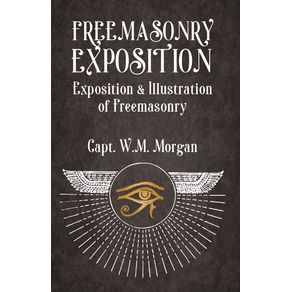 Freemasonry Exposition
Freemasonry Exposition
Lushena Books
R$ 88,36 à vista Margaret Mahler
Margaret Mahler
McFarland and Company, Inc.
R$ 293,14 ou até 3x sem juros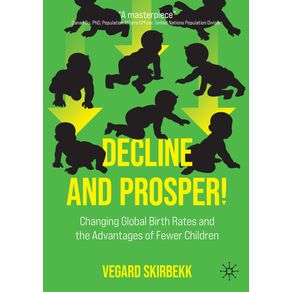 Decline and Prosper!
Decline and Prosper!
Springer Nature B.V.
R$ 279,46 ou até 3x sem juros TDICs e Sociologia: propostas pedago?gicas: (volume 2)
TDICs e Sociologia: propostas pedago?gicas: (volume 2)
Editora Café com Sociologia
R$ 47,90 à vista TDICs e Sociologia: propostas pedago?gicas (volume 1)
TDICs e Sociologia: propostas pedago?gicas (volume 1)
Editora Café com Sociologia
R$ 45,90 à vista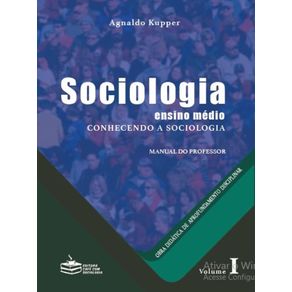 Sociologia: ensino médio - Conhecendo a Sociologia (Vol.1)
Sociologia: ensino médio - Conhecendo a Sociologia (Vol.1)
Editora Café com Sociologia
R$ 70,90 à vista O feminismo presente em casa de bonecas
O feminismo presente em casa de bonecas
Editora Viseu
R$ 28,90 à vista A Therapists Guide
A Therapists Guide
PATH
R$ 115,76 ou até 2x sem juros Realist Criminology
Realist Criminology
Springer Nature B.V.
R$ 344,44 ou até 3x sem juros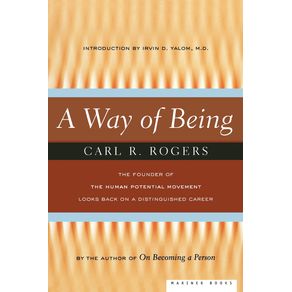 A Way of Being
A Way of Being
HARPERCOLLINS
R$ 122,77 ou até 2x sem juros Death and Burial in the Roman World
Death and Burial in the Roman World
Hopkins Fulfillment Service
R$ 295,33 ou até 3x sem juros Early Greek Myth
Early Greek Myth
Hopkins Fulfillment Service
R$ 340,67 ou até 3x sem juros Genres of Listening
Genres of Listening
Duke University Press
R$ 230,93 ou até 3x sem juros Les Fables de la Fontaine
Les Fables de la Fontaine
Books on Demand
R$ 229,30 ou até 3x sem juros Research Methods and Statistics for Cross-Cutting Research
Research Methods and Statistics for Cross-Cutting Research
African Books Collective
R$ 363,77 ou até 3x sem juros Clearing the Waters
Clearing the Waters
Hadean Press Limited
R$ 123,90 ou até 2x sem juros Scotch Rite Masonry Illustrated
Scotch Rite Masonry Illustrated
Legare Street Press
R$ 196,99 ou até 3x sem juros Applied Statistics Using Stata
Applied Statistics Using Stata
Sage Publications
R$ 449,95 ou até 3x sem juros